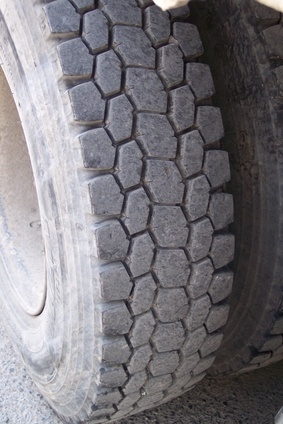
Bad tires can harm your car's performance. Bad tires can be caused by normal wear and tear or neglect, such as allowing the air pressure to get too low. Maintaining your tires keeps you safe on the road and makes your ride more comfortable.
Properly inflated tires help increase gas mileage by reducing friction. Low or flat tires don't roll as easily and require more engine power and fuel. Tire pressure typically is around 34 pounds per square inch (PSI), although the number can vary according to the make and model of your automobile.
When tires lose tread, they lose their grip on the road. Bald tires can cause serious control problems, especially in rain or snow. Bald tires often have split sidewalls where you may see tiny wires emerging from under the rubber.
A blowout is probably the most dangerous consequence of driving with bad tires. Badly worn or improperly repaired tires can be punctured suddenly by something sharp or heavy on the road. The tire can fly off the axle, causing you to careen out of control. Blowouts can also be caused by over-inflation.